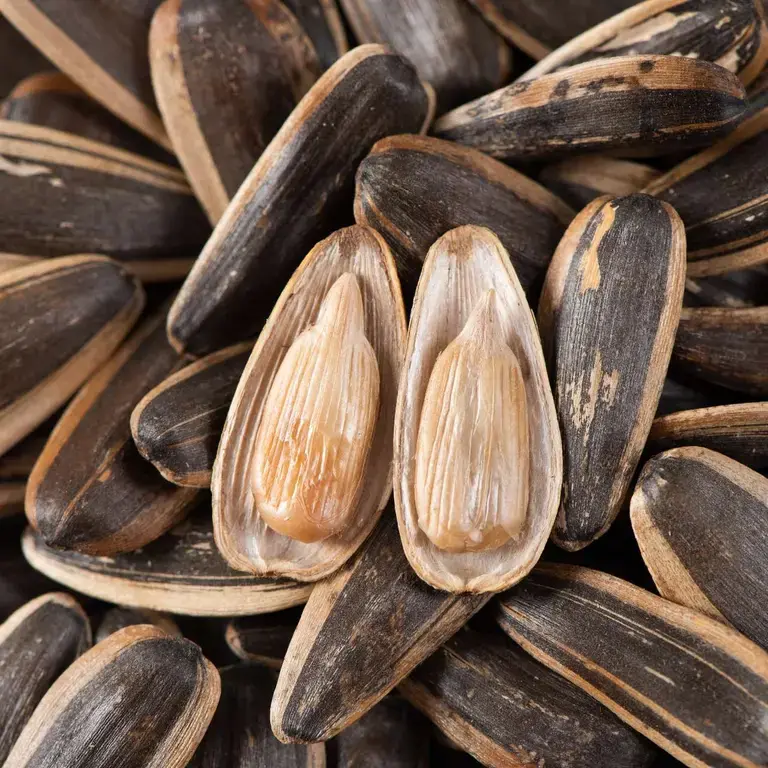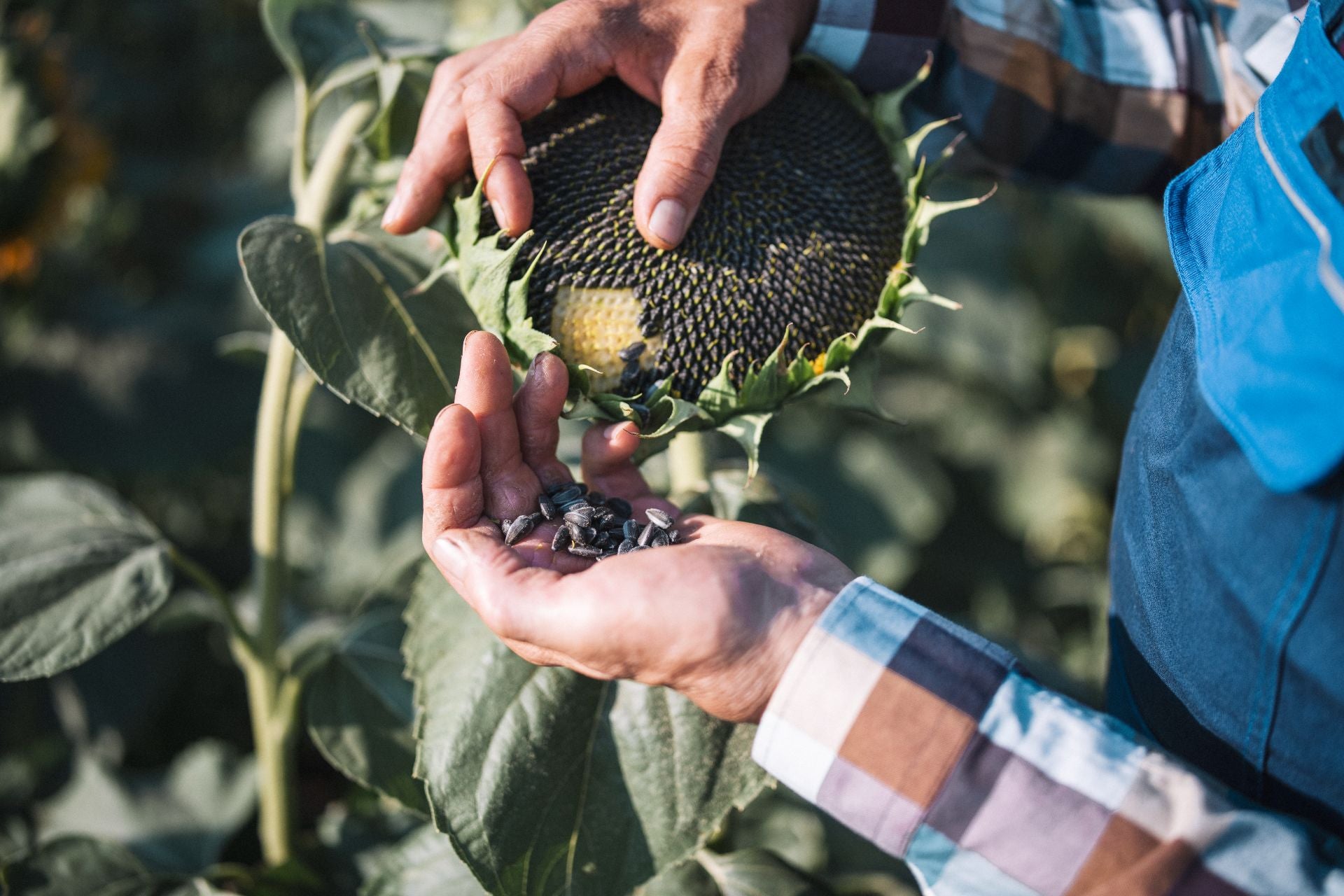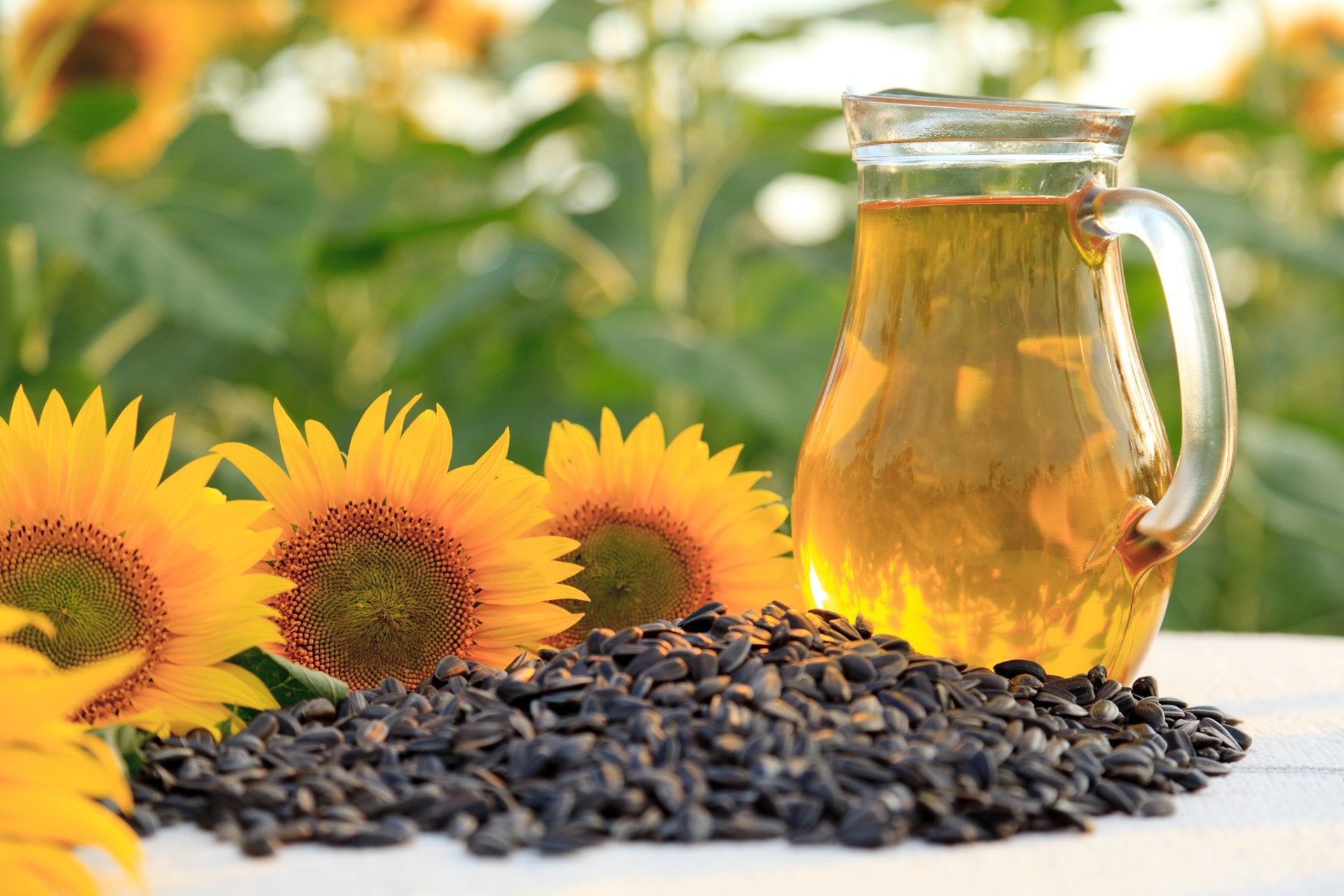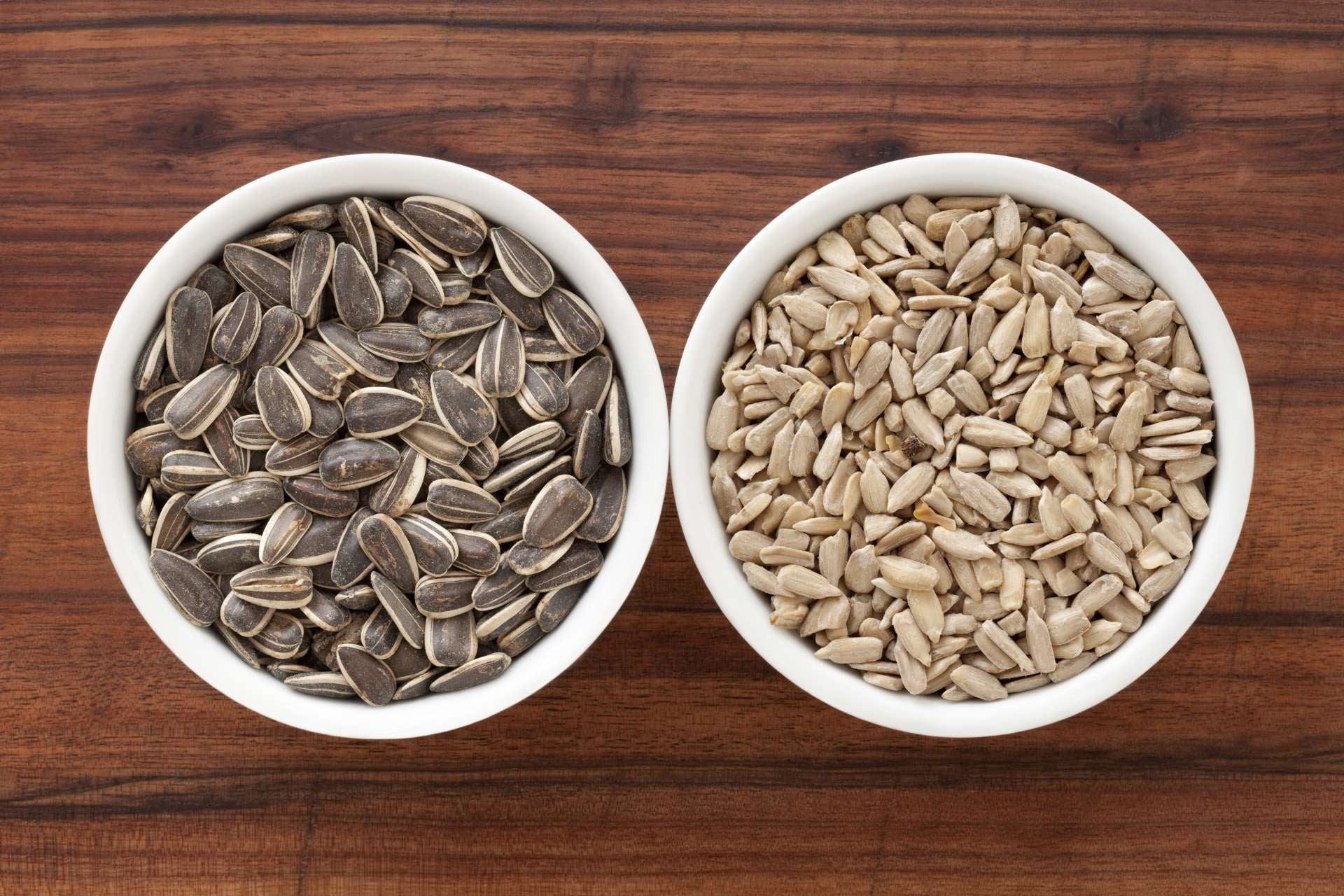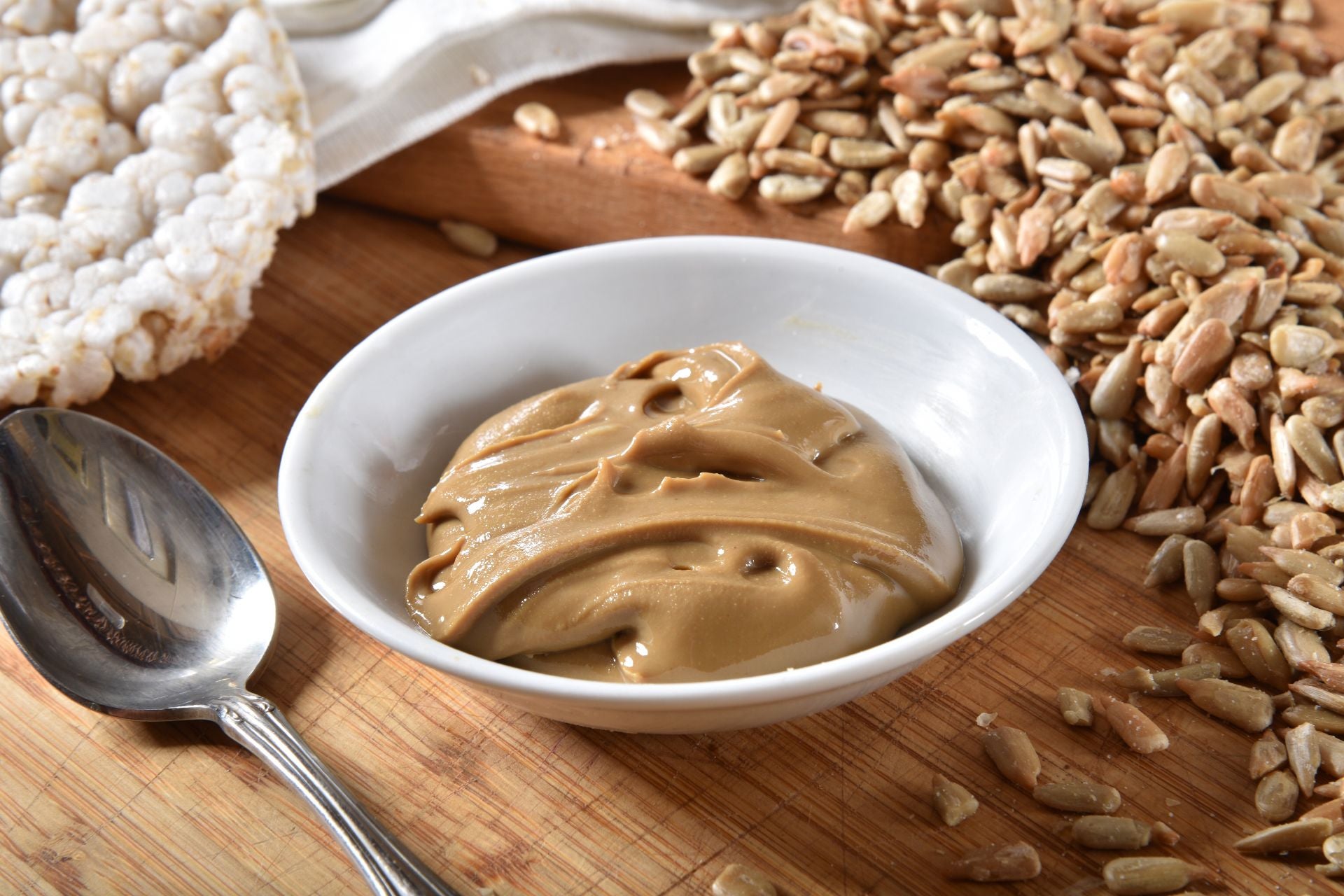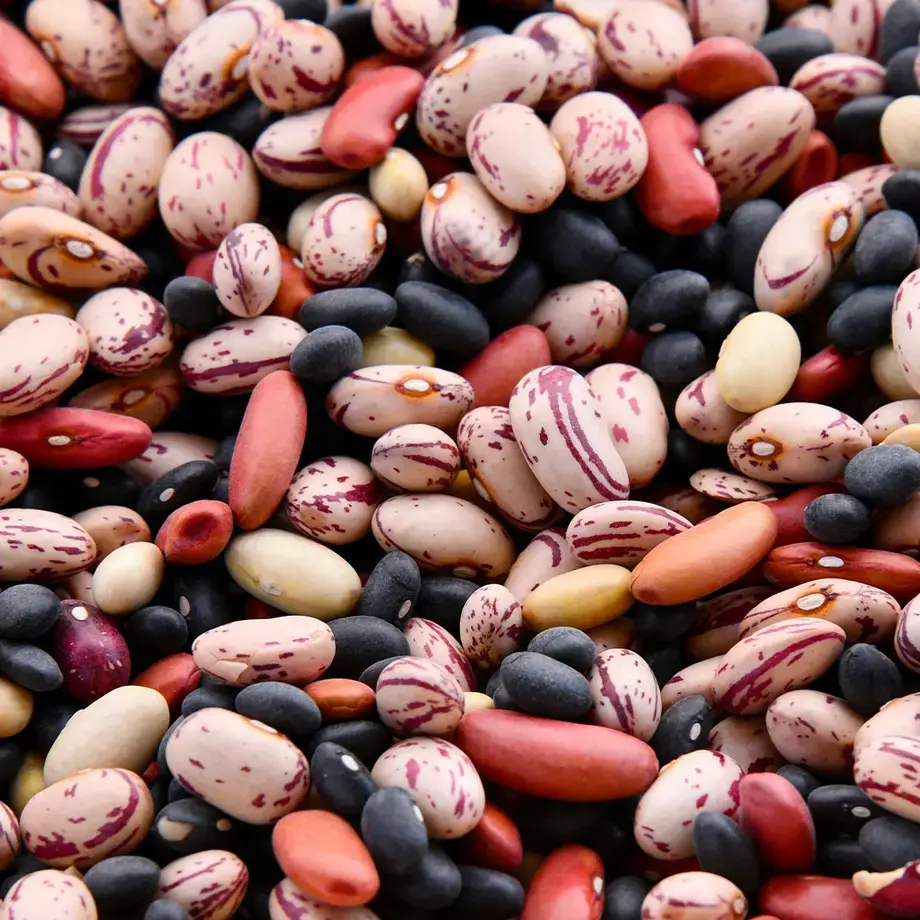Reducing inflammation
While inflammation is a natural biological reaction, chronic inflammation can cause premature ageing, leading to an increased risk of age-related illnesses like diabetes, Alzheimer's, heart disease and cancer. Studies suggest that eating sunflower seeds can reduce inflammation, and it is thought that this may be due to a combination of high vitamin E content and beneficial plant compounds known as flavonoids.
Maintaining healthy blood pressure
Vitamin E and linoleic acid, another compound found in sunflower seeds, can cause the blood vessels to relax, lowering blood pressure, and reducing the risk of heart disease.
May help to manage blood sugar
There is some evidence to suggest that eating sunflower seeds every day can help lower fasting blood sugar in people with type 2 diabetes, while eating them with high-carb foods may slow the rate at which they release their energy.
Lowering cholesterol
Eating sunflower seeds is also thought to lower ‘bad’ LDL cholesterol, another risk factor for heart disease.
Maintaining a healthy immune system
Sunflower seeds are a good source of selenium and zinc, both of which are important for maintaining a healthy immune system. Zinc helps create and maintain immune cells, while selenium helps fight infection and boost immunity.
Boosting energy levels
As a high-protein food, sunflower seeds are a great source of energy, while vitamin B1 (thiamin) helps your body to convert food into energy, and selenium can increase blood flow, thus moving oxygen around your body more efficiently.
Raw or roasted?
Most nuts or seeds are available either raw or roasted, and sunflower seeds are no different. They have a mild, nutty flavour that is enhanced by roasting, but this can affect their nutrient content. Roasted seeds tend to be lower in antioxidants, vitamins and healthy fats, but the good news is that you can keep nutrient loss to a minimum by roasting them low and slow. Buy your seeds raw and roast them yourself so you can control the temperature. For best results, cook on a medium- low temperature of 284°F (140°C) for 15 minutes.
Plain or salted?
Salty snacks may be tempting, but too much salt can cause high blood pressure and an increased risk of heart attacks, strokes, kidney problems and osteoporosis. A little salt now and again is fine, but plain seeds are by far the healthier option.
